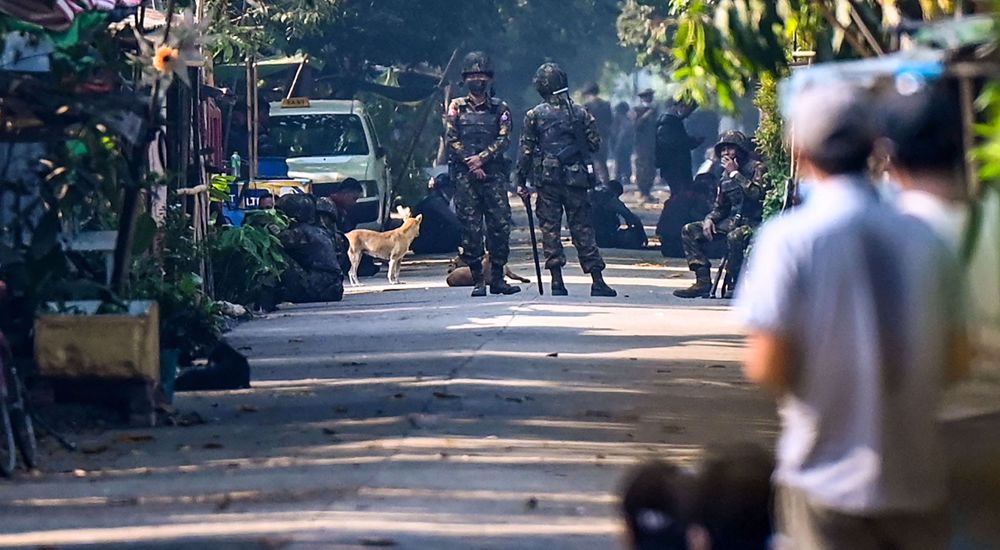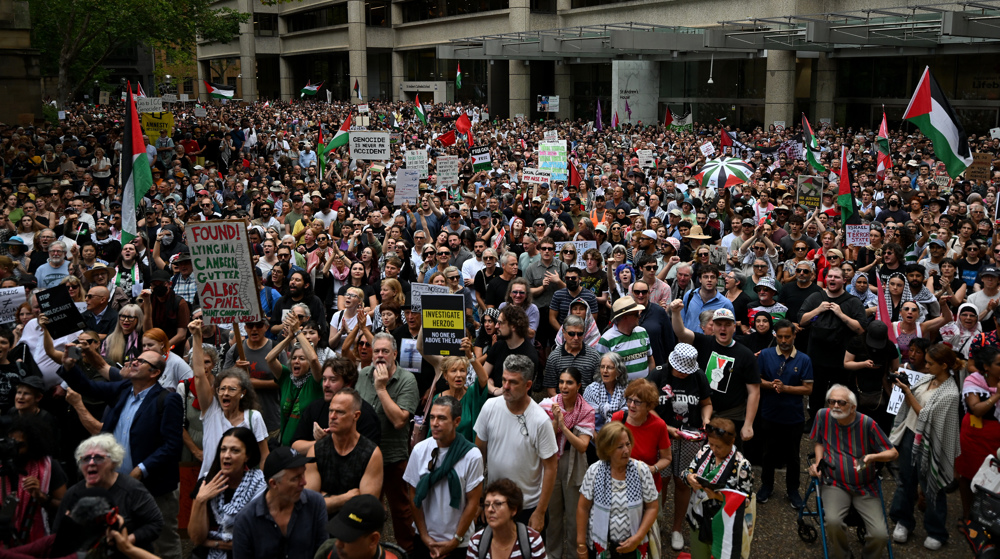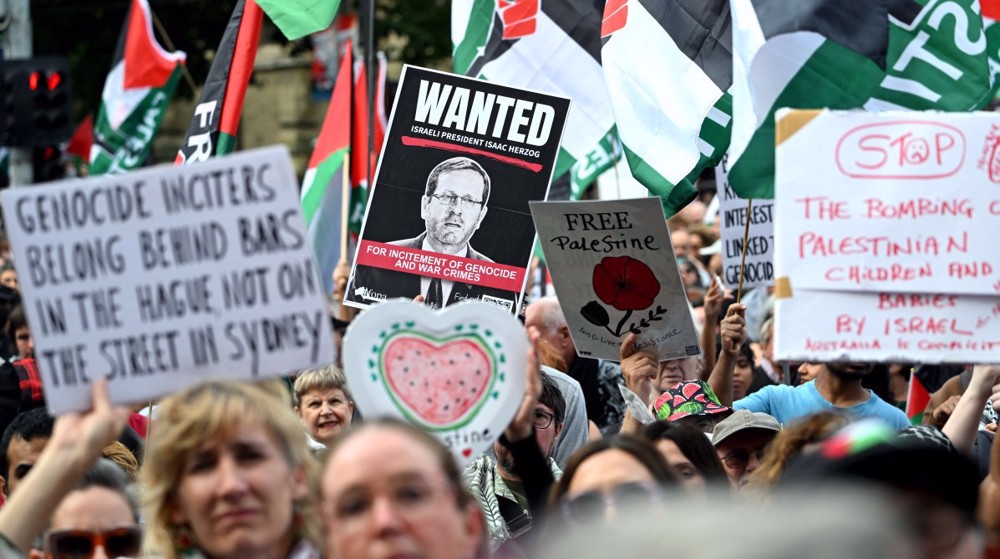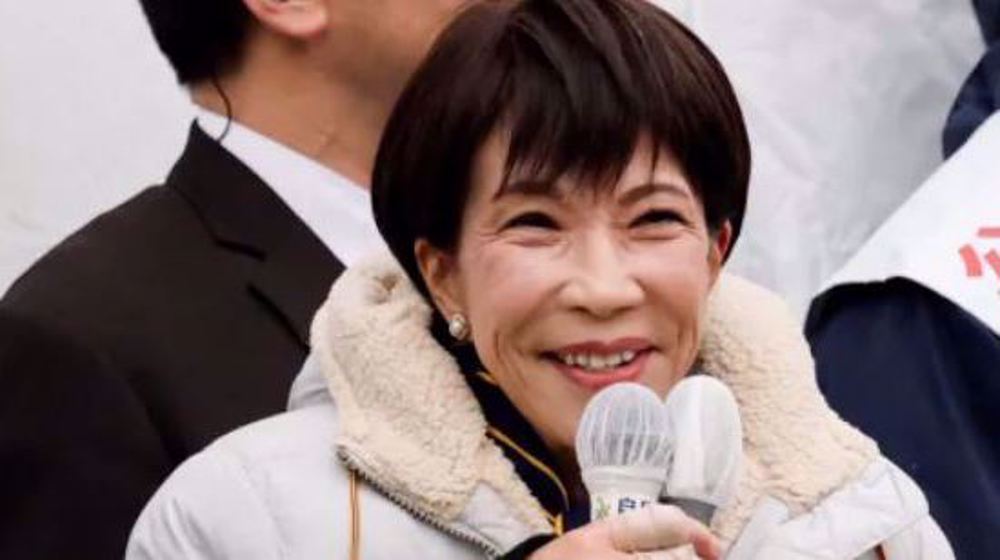UN Security Council condemns Myanmar violence, urges military restraint
The United Nations Security Council has condemned the violent crackdown on peaceful protesters in Myanmar, but has failed to denounce the recent military takeover in the country as a coup or to threaten further action.
In a statement agreed on Wednesday, the UNSC said it "strongly condemns the violence against peaceful protesters, including against women, youth and children," and urged Myanmar's military to show restraint.
"The council calls for the military to exercise utmost restraint and emphasizes that it is following the situation closely," the statement read.
But language that would have condemned the coup and threatened possible further action was dropped from the statement due to opposition by India, Vietnam, China, and Russia.
The council further expressed deep concern about the restrictions on medical personnel, civil society, labor union members, journalists, and media workers in Myanmar, and called for "the immediate release of all those detained arbitrarily."
The statement stressed the need "to uphold democratic institutions and processes, refrain from violence, fully respect human rights and fundamental freedoms and uphold the rule of law."
An initial draft of the Wednesday statement, seen by Reuters, had condemned the military coup and said the council was ready "to consider possible further measures," which is generally seen as code for sanctions.
But late on Tuesday, India, Vietnam, China, and Russia all suggested amendments to the draft, including to remove references to a coup and the threat to consider further action.
Last month, the Security Council also issued a statement voicing deep concern about the state of emergency imposed by the junta in Myanmar and calling for the release of all those detained, but stopped short of condemning the coup.
Myanmar has been gripped by turmoil since the military ousted de facto leader Aung San Suu Kyi in a February 1 coup and detained her as well as other senior figures from the ruling National League for Democracy (NLD) and took control of the country.
The junta, which has declared a one-year emergency across Myanmar, claimed that it seized power after it found fraud in elections held three months earlier that the NLD had won in a landslide.
Since then, hundreds of thousands of people have held numerous protests against the coup leaders in the Southeast Asian country, demanding the release of Suu Kyi and the other detainees.
Military forces have been using disproportionate force to quell the protests. More than 50 people have lost their lives and nearly 1,800 have been arrested so far, according to data from the United Nations (UN) and the Assistance Association for Political Prisoners advocacy group.
Myanmar's military on 'killing spree' against protesters: Amnesty
Meanwhile, a new report by Amnesty International says the Myanmarese military is using lethal tactics and an arsenal of battlefield weapons to carry out a "killing spree" against peaceful protesters.
"These Myanmar military tactics are far from new but their killing sprees have never before been live-streamed for the world to see," Amnesty International's Senior Crisis Response Adviser Joanne Mariner said.
The remarks were made after Amnesty's Crisis Evidence Lab verified the more than 50 videos of the ongoing crackdown on mass protests in Myanmar and confirmed that security forces "appear to be implementing planned, systematic strategies including the ramped-up use of lethal force."
"Many of the killings documented amount to extrajudicial executions," the rights group said, adding that the footage clearly showed that troops "are increasingly armed with weapons that are only appropriate for the battlefield, not for policing actions."
Officers captured on video were frequently seen engaging in "reckless behavior," including the indiscriminate use of live ammunition in built-up areas.
The video clips, filmed between February 28 and March 8, were recorded by members of the public and local media in cities including Dawei, Mandalay, Mawlamyine, Monywa, Myeik, Myitkyina, and Yangon.
Amnesty said that the further analysis of photos and videos showed the cities had seen "extreme instances of excessive force," and military soldiers had sometimes lent their weapons to police officers to be part of the crackdown.
A number of Myanmarese police officers who defected and fled to neighboring India also told Reuters on Wednesday that they had been instructed by their superiors to single out protesters and to "shoot till they are dead."
Amnesty called on Myanmar's military authorities to "immediately cease their deadly onslaught, de-escalate the situation nationwide, and release all those arbitrarily detained."
Mariner, the Amnesty official, said the weaponry deployed by the military revealed "a deliberate and dangerous escalation in tactics."
"As the death toll surges, the UN Security Council and the international community must move beyond words of concern and immediately act to halt violations and hold perpetrators accountable," she said.
Amnesty International had earlier said in a February report that security forces in Myanmar deployed machine guns against peaceful protesters and shot one woman in the head during a demonstration against the military coup.
The Myanmar military has already been accused of committing genocide and crimes against humanity against the Muslim Rohingya in Rakhine State in 2017.
Myanmar's coup and the ensuing crackdown have drawn widespread international condemnation as well as targeted sanctions by some countries against top generals.
The junta has, however, shrugged off pressure by foreign countries.
VIDEO | 47th anniversary of Islamic Revolution celebrated at Iran's Embassy to Holy See
VIDEO | Sana’a marks February 11 anniversary with mass rally at US embassy site
VIDEO | Iran’s Embassy in Ethiopia celebrates 47th anniversary of Islamic Revolution
Saudi leaders congratulate Iran on 47th anniversary of Islamic Revolution
VIDEO | Iranian embassy in Malaysia celebrates Islamic Revolution anniversary
VIDEO | Press TV's news headlines
VIDEO | Hundreds protest Israeli president's visit in front of Australia's parliament house
Iran officials hail massive rallies marking Islamic Revolution anniversary













 This makes it easy to access the Press TV website
This makes it easy to access the Press TV website